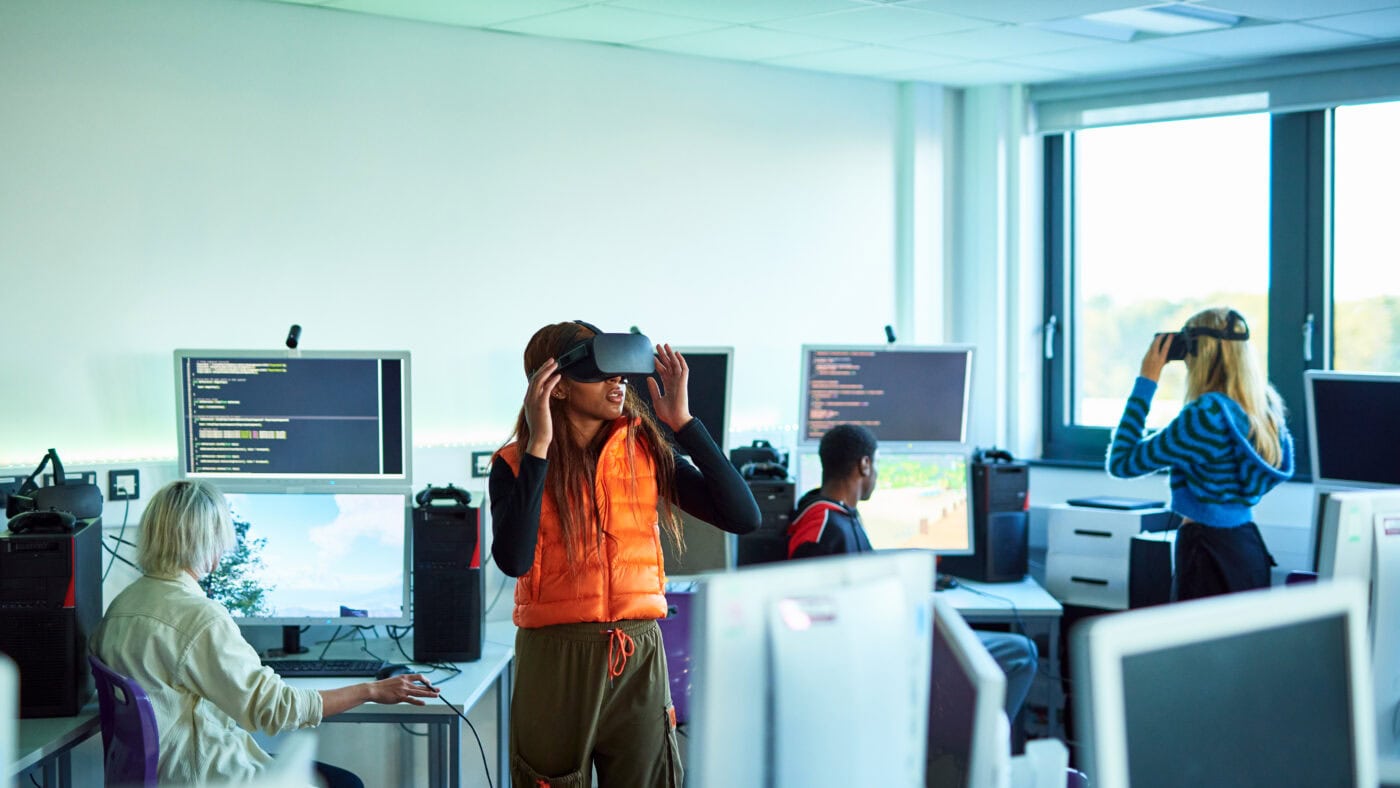Labour’s recent decisions to dilute plans to restrict social media access for under-16s and to put smartphone bans in schools on a statutory footing are misguided.
It also comes on top of Education Secretary, Bridget Phillipson’s plan for schools to ‘narrow the digital divide’ and enter a ‘new technological era’ by boosting the uptake of education technology (EdTech). At first glance, Labour’s plans may sound forward-looking, however, the uncritical adoption of EdTech could inadvertently harm the learning experiences of a generation of schoolchildren.
EdTech typically refers to school-issued digital devices such as Chromebooks, tablets, or laptops and associated software used by students. Increasing tech adoption in schools has been heralded as a way to accelerate learning and bridge attainment gaps. Yet many of these benefits are yet to materialise. Indeed, in a damning indictment, a recent UNESCO report concluded that: ‘There is little robust evidence on digital technology’s added value in education.’
At the same time, across OECD countries, test scores in maths, science and reading have been declining. While Britain has improved its position relative to other nations, it has not been immune from the trend of declining overall performance. Some have argued this is purely a consequence of the pandemic but the decline predates COVID-19 – it dates back to the early 2010s. This coincides with the proliferation of digital devices, such as tablets in classrooms. So, it is at least worth considering whether digitisation contributed to the decline.
The jury may still be out on this; however, what is clear is that learning on screens simply does not yield the same benefits as learning on paper.
Research supports this, showing that children derive deeper meaning from printed texts. The act of reading on paper fosters concentration and encourages greater reflection on the content learnt. For instance, students reading printed texts perform better on comprehension tests than students reading the same text on a screen. Further, the act of writing has been shown to improve memory and recall of words. As such, ‘tactile’ learning appears best suited to laying the foundations for literacy.
It is not just the digital medium that is problematic but the inherent distractions that come with access to it. Even with the most diligent supervision, it is highly challenging to prevent students’ attention from being diverted by the allure of the digital world. For example, one study found that laptop usage during lessons led students to spend, on average, a staggering 38 minutes per hour off-task.
To make matters worse, EdTech’s promise to make learning ‘more exciting’, ‘less stressful’ and ‘game-like’ fundamentally misunderstands the nature of education. Learning is not always entertaining: it requires effort, persistence and often failure – gamification undermines this. For instance, apps such as Duolingo, used in some schools to develop language skills, may seem engaging, but they can give users the mere impression of proficiency. Students may feel that they are progressing by maintaining ‘streaks’ and getting the next ‘trophy’ while not actually consolidating their understanding of vocabulary and grammar. In this way, gamified learning offers little more than an achievement placebo.
Fundamentally, EdTech risks prioritising immediate gratification over long-term growth and deprives students of the opportunity to develop crucial virtues like patience, concentration and creativity. These skills are more essential than ever when AI can replicate much of the work humans do.
What’s more, while Labour plough on with their digital revolution, other countries are recognising the dangers of such an approach. For instance, in 2022, Helsingør, a municipality in Denmark, banned the use of Chromebooks in schools, and just last month, Denmark announced a wholesale ban on smartphones during the school day. Similarly, in 2023, Sweden, often viewed as having a model education system, announced a reduction in student-facing technology, favouring reading hardcopy books and taking handwritten notes.
This, combined with the work of academic Jonathan Haidt, who has highlighted the negative impacts of screen time on child development, suggests the beginnings of a pedagogical ‘vibe shift’ – screen-based learning is out and pen and paper are back in.
Britain should consider following suit.
Labour should be actively looking to reduce screentime in schools, all the while evaluating where EdTech can actually offer positive impacts on learning.
Of course, reducing screen usage does not mean schools should simply return to the days of chalk and blackboards. Far from it, tech can help to lower barriers to learning, especially for students with specific needs. For instance, specialised software can make reading easier for students with dyslexia.
Equally, it is important for pupils to develop digital skills in readiness for an increasingly tech-centric world. But these can be explored in IT lessons or digital skills sessions – EdTech need not become the pedagogical default.
To ensure schools remain places which value concentration, critical thinking and deep engagement, effectiveness over expediency must guide our approach to EdTech.
Click here to subscribe to our daily briefing – the best pieces from CapX and across the web.
CapX depends on the generosity of its readers. If you value what we do, please consider making a donation.


